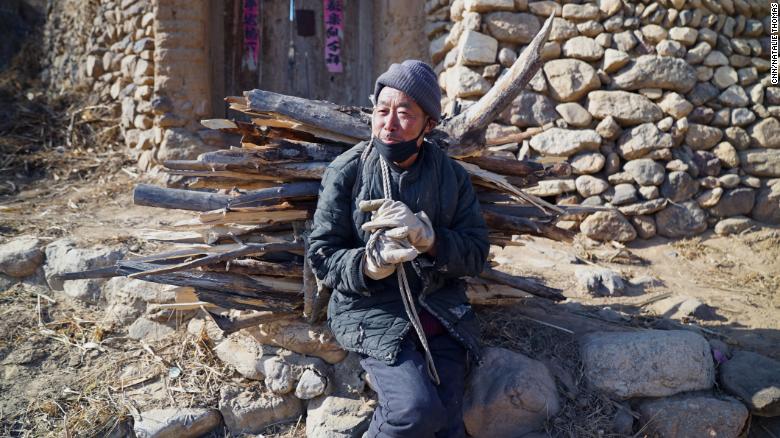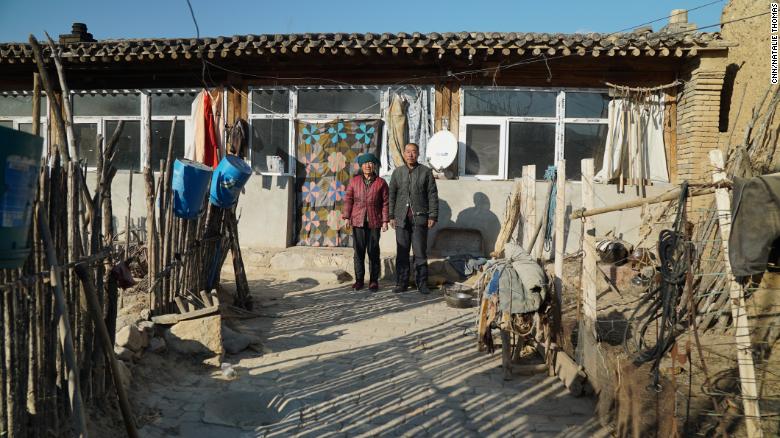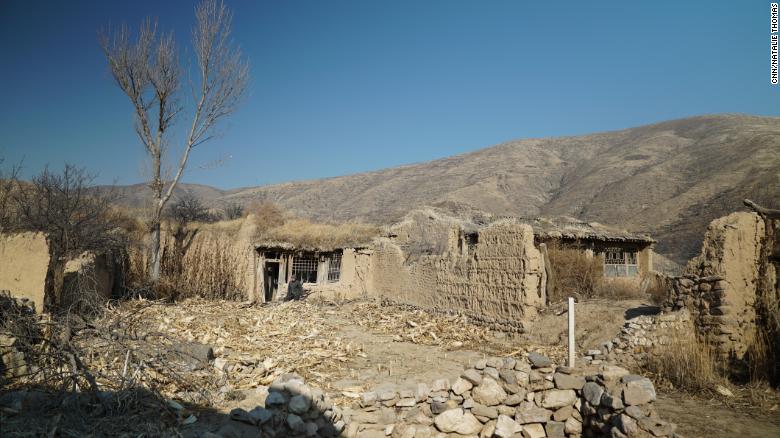Beijing- For Qin Taixiao, old age is a time of loneliness and back-breaking labor.
Every day in winter, the ailing 68-year-old wakes early, collects 50 kilograms (110 pounds) of firewood from the nearby forest, and hauls it home on his back. He does it again in the afternoon.
Burning wood instead of coal is a cheaper way to stave off the freezing temperatures of the northern Chinese winter.
Qin and his wife, Sun Sherong, have spent the past year almost entirely alone. They live in an isolated and largely abandoned village about 240 kilometers (150 miles) from Beijing.
Between his trips to the forest, Qin manages his emphysema and colon cancer with the meager amounts of drugs he can afford.
“What can I say?” he says. “Life’s all right. There is no other way.”

His steely stoicism fades only when talking about his favorite time of the year — the Lunar New Year. The week-long holiday is the only time he sees his three children.
Like many others, Qin’s children left the village years ago to find work, joining the relentless current of China’s great urban migration spurred by its economic boom. Hundreds of millions have moved to cities in recent decades, leaving behind empty villages.
Qin’s problems are typical of those facing millions of families. China’s population is aging extremely quickly, and many elderly people aren’t sure if the country or their children will be able to support them.

By 2050, more than 34% of China’s citizens are projected to be more than 60 years old, according to the country’s National Working Commission. That will amount to almost 500 million people, nearly twice as many as today.
The nationwide effects of a decline in the working-age population could be drastic and wide-ranging. Experts have long warned China could “get old before getting rich” as the aging population becomes a drag on economic growth.
And with fewer working people contributing to the government’s coffers, the stress on Beijing’s finances will become increasingly acute.
“For the next few years, the number of elderly people will grow by millions annually, indicating that each year, fewer and fewer people will be contributing to social welfare that will have to be shared across a greater number of recipients,” Yuan Xin, director of the Nankai University Aging Development Strategy Research Center, told Caixin, a Chinese financial magazine.
Not only will the government be stretched providing for the elderly, some studies suggest that citizens themselves aren’t saving enough for their own retirement.
At the end of 2017, Chinese workers collectively held around $1 trillion in savings, according to the Ministry of Finance. Coming in at about $4,000 per person over age 60, that’s likely not enough for a country soon to have hundreds of millions of retirees.
Chinese officials estimate that by 2050, more than 26% of GDP will be spent on elderly care, up from just over 7% now.
One reason for the lack of savings is cultural. Parents have grown up in a society where traditionally the elderly relied on family to cover their retirement.
Children and grandchildren are supposed to financially support their older relatives. But with fewer young people around, the burden on their generations is growing unbearable.
In 1993, there were five working-age people paying into the social security system for every one person withdrawing from it, according to the Ministry of Human Resources and Social Security.
By 2050, that’s expected to shrink to just 1.3 to 1.
The rapidly aging population is largely due to China’s notorious one-child policy. Birth rates plunged after it was introduced in 1980, leaving young people taking care of their elders but unable to share the burden amongst siblings.
The policy was eased in 2016, with two children now allowed, but it hasn’t sparked a baby boom yet.
In a 2017 editorial in the state-run Global Times, Xi’an student Wang Yihan said the one-child policy had put huge pressure on only children to support their aging parents, who believed they had sacrificed for their child.
“‘How does it feel to be the only child?’ is a question asked (online) … and the most popular answer is ‘Dare not die, dare not marry someone far from home, eager to earn money, because they only have me’,” Wang said.
Many of those young people who left the villages over the last several decades, like Qin and Sun’s children, did find better salaries.
But many children fear they still aren’t earning enough to comfortably take care of their parents.

Until a solution is found, more and more elderly people will have to support themselves. Qin and Sun survive on about $1,500 per year through selling corn.
“It’s difficult for our children to care for us,” said Sun, a few weeks before her kids were due to return home for the new year. “They already don’t make much money, and we don’t want to be a burden for them.”
But one day, hauling 100 kilograms of firewood a day will become physically impossible. Qin’s lingering cancer could worsen. Sun could slip and fall.
When that day comes, like so many other aging Chinese citizens, they’ll have to turn to their kids for help. Whether society as a whole can afford that is one of China’s great questions for the future.
As reported by CNN
